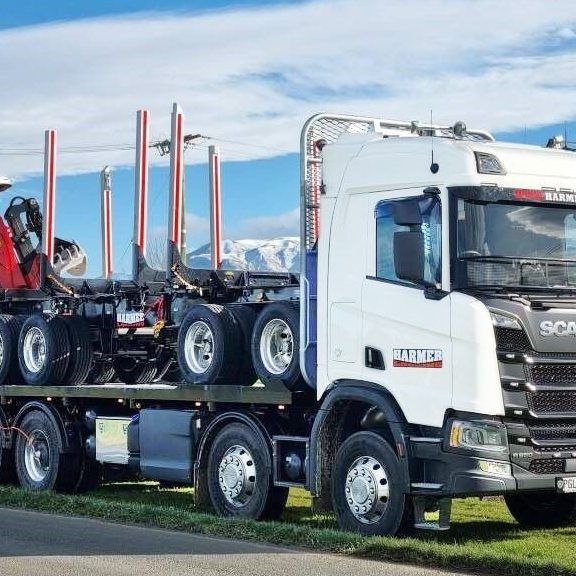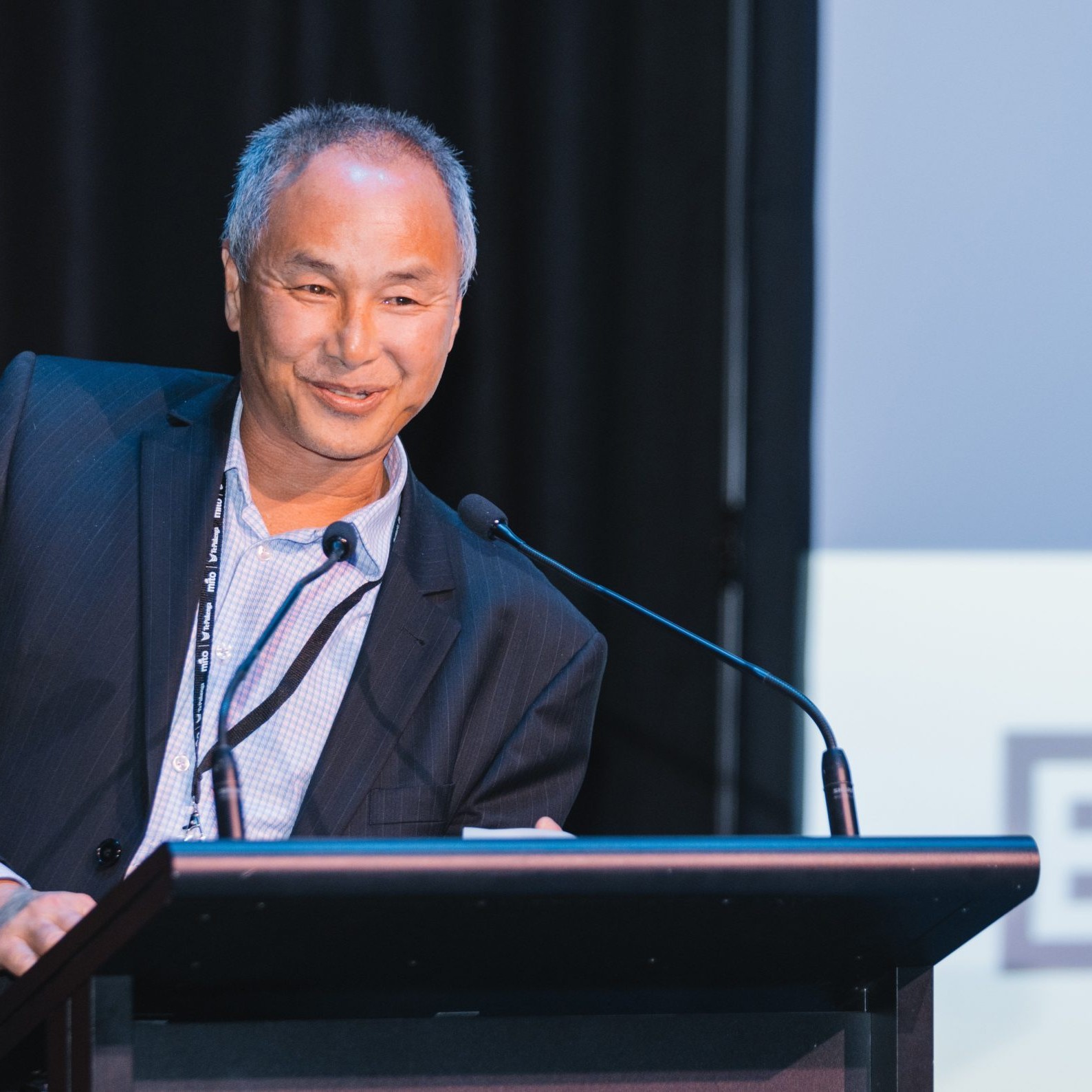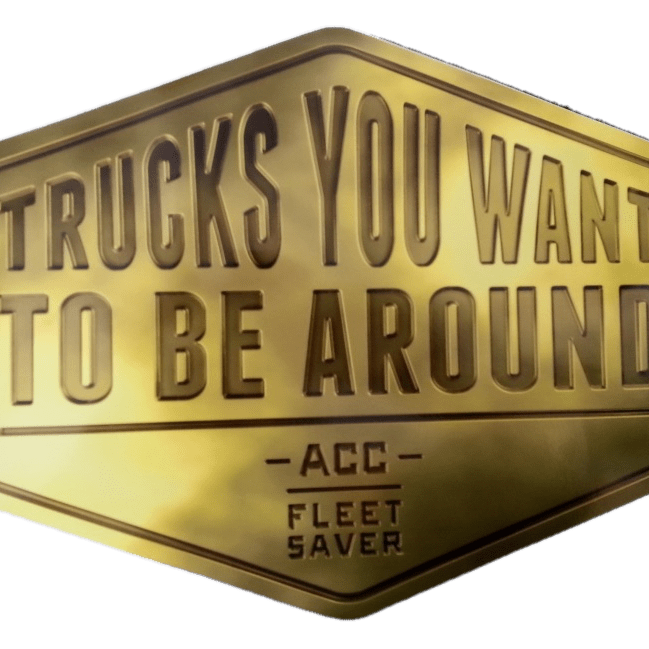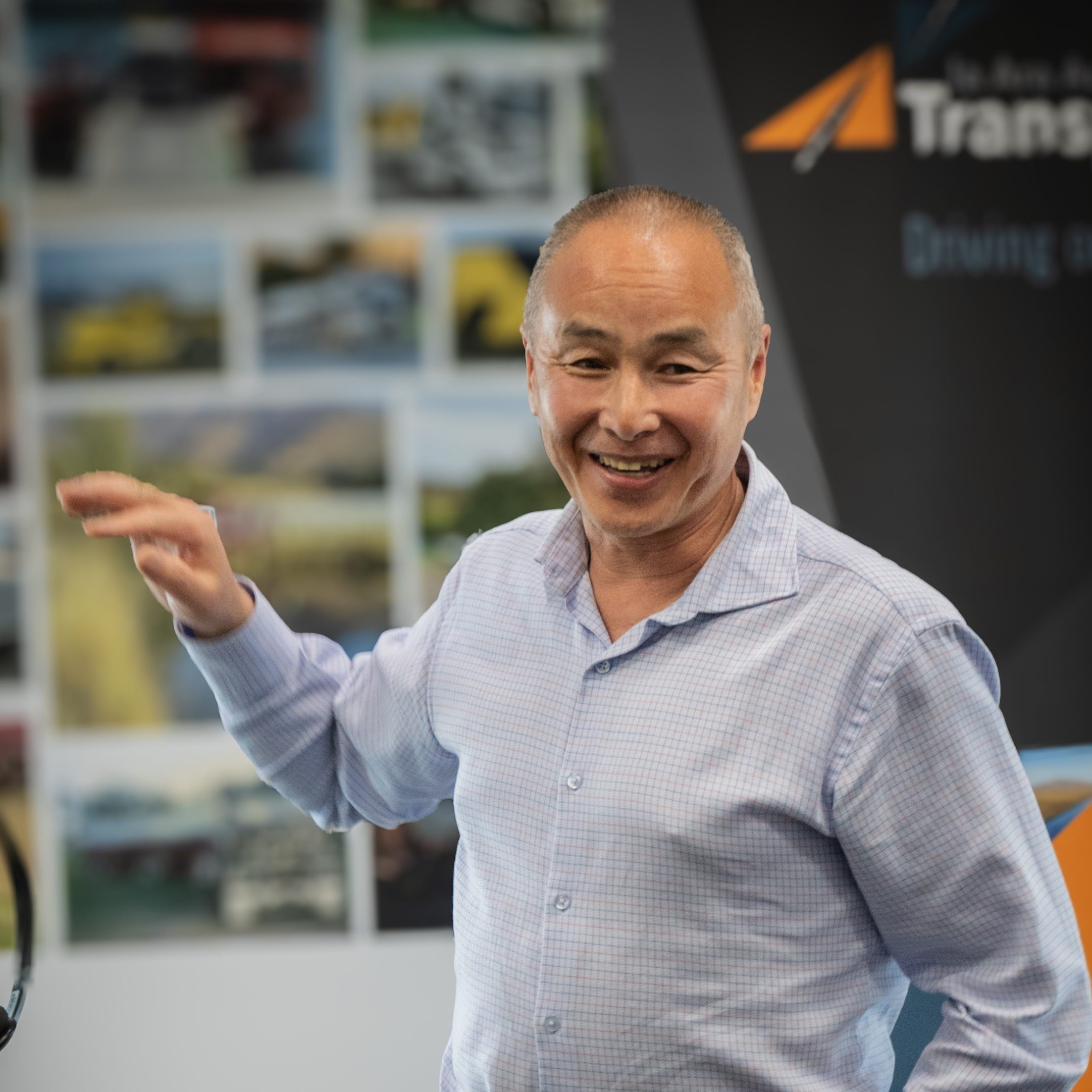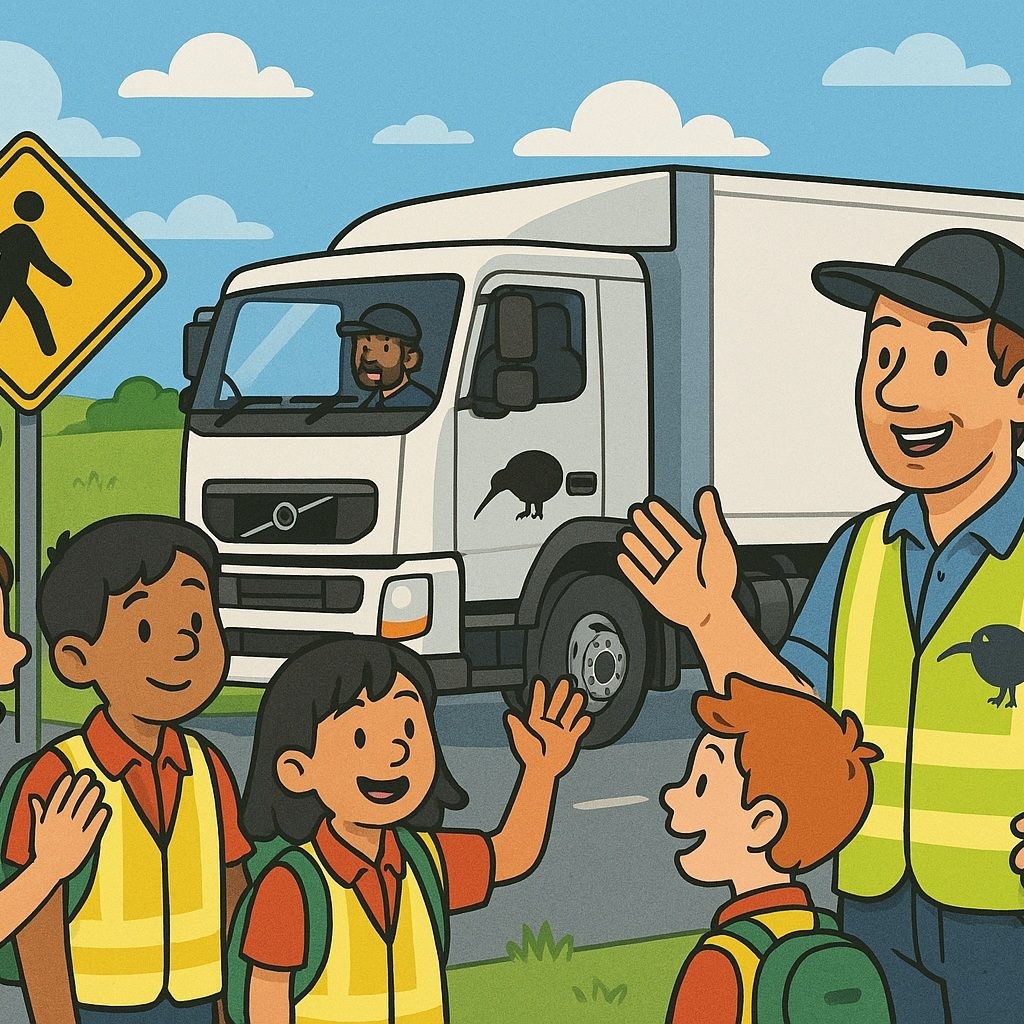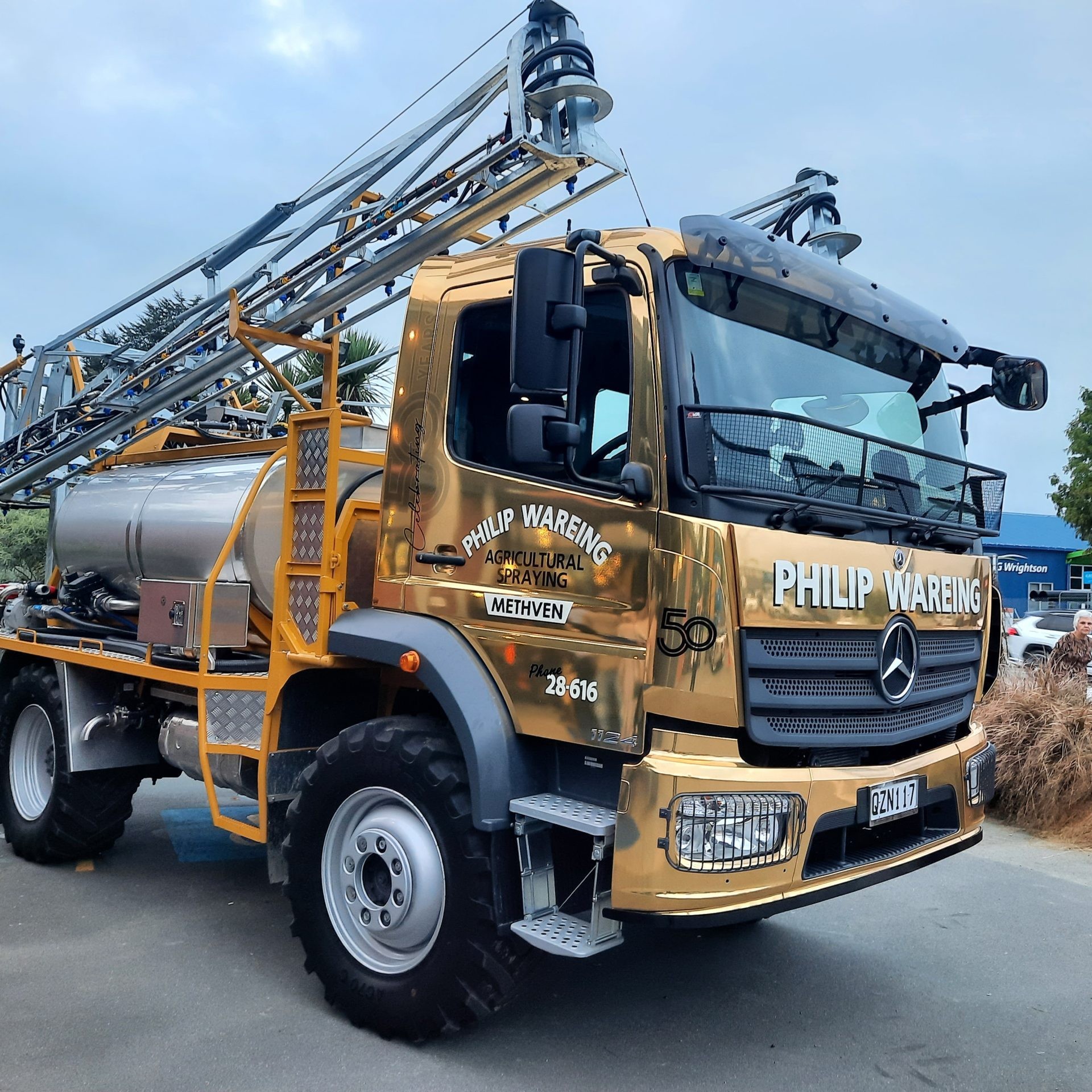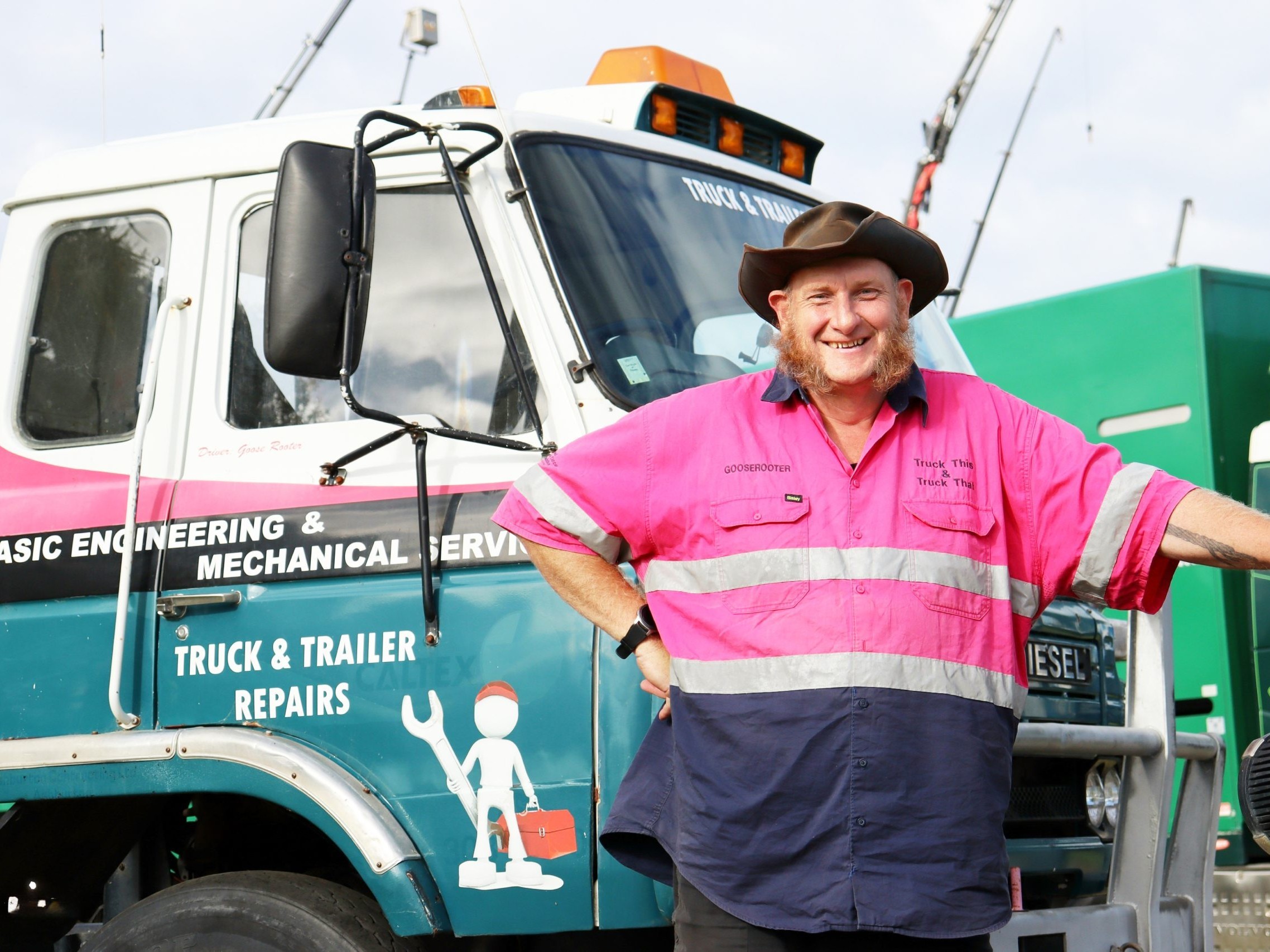
If you’re feeling like life’s in the crapper and everything’s building up, Robbie Shefford has a few handy tips that just might help.
And he knows they work, because they’re the same tools he used to pull himself out of some of the darkest times in his life.
He’s even spent time inside what he jokingly refers to as the “looney bin,” otherwise known as a mental health facility. But what came out of that experience wasn’t shame or silence, it was drive, purpose, and a loud, unmistakable voice that echoes through paddocks, rest stops, A&P shows, and truck yards all over the country.
Robbie Shefford is also known as Gooserooter. He earned that nickname after a midnight repair involving a broken-down Kenworth, a bottle of whiskey, and several fingers jammed between a fifth-wheel plate and a gooseneck trailer. The name stuck, and so did his reputation as a bloke who shows up when it matters, not just with advice, but with lived experience and a listening ear.
He’s become something of a grassroots mental health fairy godfather, popping up at rural events, truck shows, toolbox meetings, or even supermarket carparks. Sometimes he’s pulled aside in the middle of nowhere for a heart-to-heart, and he’s always ready.
Wherever people are, that’s where Robbie goes, taking mental health right to the heart of New Zealand’s rural and trucking communities.
“My journey to becoming an advocate started during my time in the fire service. I had a mental breakdown and was under the care of mental health services.
“I was open about it, thinking transparency was the best way forward. But six years later, the fire service used that against me, trying to have me removed from the ranks of firefighter. I fought back and won, but the experience stuck with me.”
After a serious knee injury and six surgeries that followed, he says he had time to reflect.
“That old hurt from how I was treated was still gnawing at me, so I decided to speak up. I made a video and posted it to Facebook. It went viral. The comments came flooding in with people saying things like ‘We were treated the same way, but we just left.’.
“It wasn’t just comments from New Zealand, they were from Australia, USA and the UK.”
“That’s when I realised the power of words, and of being honest. I started making more videos, talking about life, struggles, and positive thinking. That’s where it all began.”
“Because of the knee injury and the ongoing pain and complications, I can’t go back to trucking or farming. But I’ve lived both those lives. I understand what it’s like to be on the farm, to come home to the family, to be involved in the Lions Club or Young Farmers. I also know what it’s like to be a truck driver, talking to no one for hours while on the road, alone with your thoughts.”
So, two years ago, he had an idea.
“I got a caravan and turned it into a mobile office. I stocked it with tea, coffee, soup, and started parking by the roadside. Drivers stopped in, had a coffee, and opened up about life, That was the start of A Man with a Plan and a Caravan.”
The first week he had 75 people stop. They weren’t all truck drivers, they were from all walks of life.
“I did that for a few weeks, then a mate asked me to go and drive a tractor for him for a few days. I never saw the tractor as I ended up driving his truck for a few weeks.
“After that I started going to events like Wheels at Wanaka, field days, and A&P Shows. After a couple of shows, I realised the wee caravan was too small, but I made it work the best I could. Eventually, I had to upgrade.”
After a chat with The Christchurch RV Centre, they came on board and sponsored him into a larger Leisure Line caravan. But then his Suzuki Escudo was too small to tow it. So he needed a new tow wagon.
“One of my long-time followers, who had gained a lot from my videos, bought and donated a bigger vehicle. Now known as Jed the Jeep, it gets us where we need to go. I load up my modified Fordson race tractor on the back of the old Nissan CK20, and Sandy, my partner, drives Jed, towing the caravan.”
He tried the tractor after being involved with the Mayfield A&P Show tractor pull. It’s become a handy tool in the toolbox as an icebreaker, People come over to check out the tractor, and they stay for a talk.
“Sometimes they talk tractors and trucks, sometimes the talk goes to mental health and wellbeing,” he says.
“I tell them my story, how I ended up in the looney bin. And you can see the look of relief on their face when they hear it. It’s that moment I can see the look of relief on their face of ‘Oh shit, I’m not the only one going through it.’”
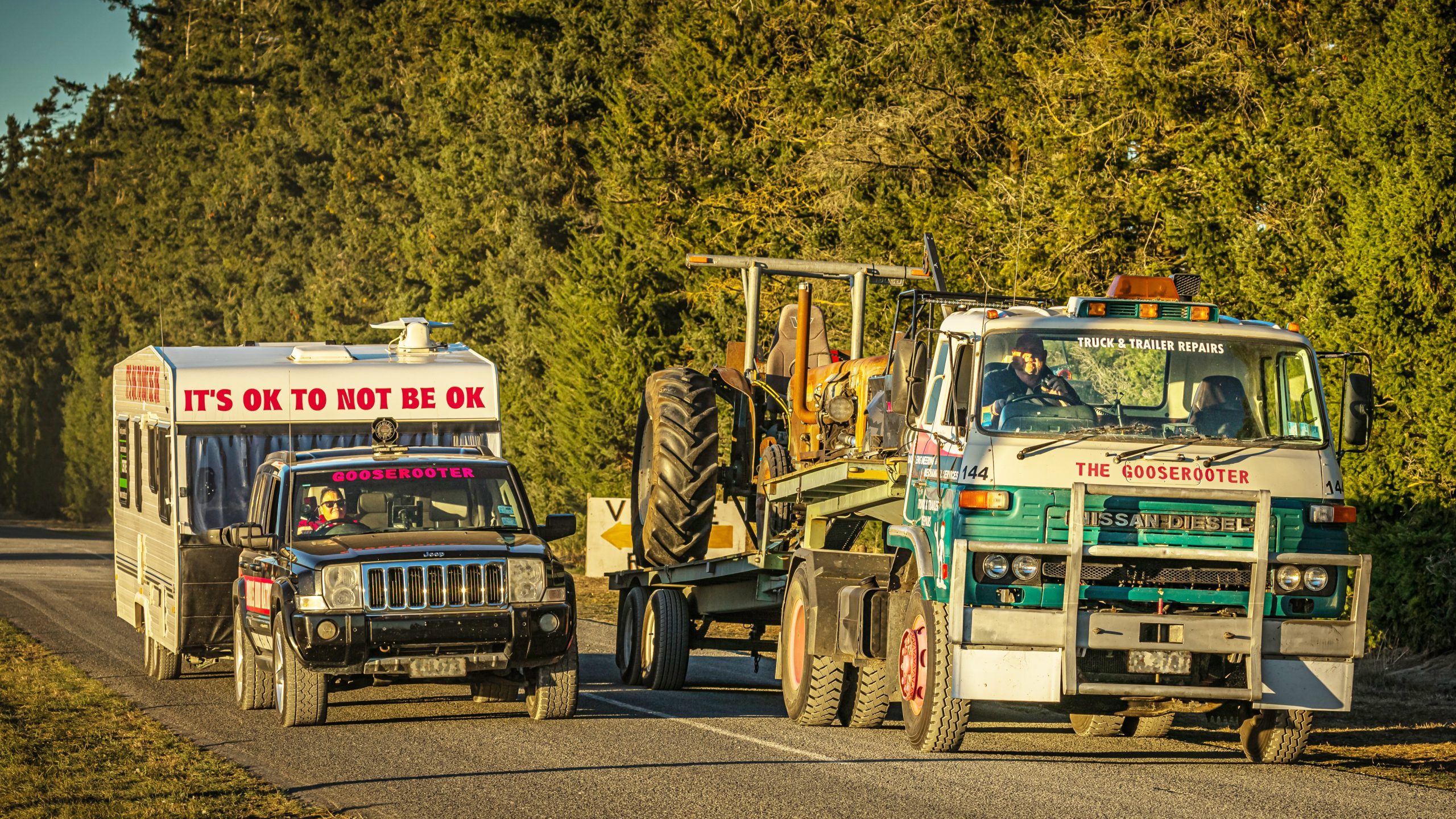 Sandy — The Other Half of the Heartbeat
Sandy — The Other Half of the Heartbeat
“Every plan needs a good teammate, and for me, that’s Sandy.” Says Robbie.
“She’s not just my partner in life, she’s a crucial part of this whole operation. Where I’m often the voice out front, Sandy is the quiet strength behind the scenes, and the one many women feel comfortable opening up to.
“She first connected with me after watching one of my mental health videos. She was going through her own battles and saw something in the honesty that made her reach out.
“That message turned into a conversation, and that conversation grew into a partnership. These days, we’re not just on the road together, we’re in this mission side by side.”
He says Sandy has a strong background in farming, so she understands rural life like few others. “She knows what it means to get stuck in, what it feels like when things go wrong, and how heavy life can get. She’s had her own struggles with mental health, and because of that, she connects with people on a deeply personal level.”
“When we’re on the road, Sandy’s usually behind the wheel of Jed, towing the caravan from show to show. She helps set up, keeps things running, and connects with the people who sometimes need a softer voice. While I’m talking trucks and tractors with the blokes, Sandy’s there for the women—offering a cuppa, an ear, and a bit of hope.”
He says she sees the people hovering nearby, not sure if they should speak. She’s the one who smiles, says hello, and gently opens the door of conversation.
“Together, we’ve created something more than just a caravan and a cause. We’ve built a travelling safe space, shaped by trust, compassion, and shared experience.”
But as the operation has grown, so has the need to fund it. Which means getting a little bit business-y, and raising some money.
“Somebody told me sponsors like numbers. So I sat down one night, went through Facebook, and worked out that in the last couple of years we’ve been to about 100 shows, and talked to around 10,000 people.”
What works, I reckon, is that I’m someone they can relate to. I’ve been there, I’ve lived it. My qualification is QBE — Qualified By Experience.
He’s also where the people are, on their days off, at the events.
“I’m accessible … I’ve had people come along to events, not to look around the events, but to talk about life.”
“Whether I’m at a show, or on the side of the road, people can come and have a yarn.”
It’s not just events. He says on a Southland tour last year they were stopped at a supermarket.
“A bloke came up, introduced himself, and said he’d been following our journey. We talked for about 15 minutes. The next day, he messaged me on Facebook and said, “Thanks for the talk. It might not have seemed like much to you, but that convo helped me understand myself a bit better, and realise I’m not a freak for dealing with things the way I do.”
It’s those moments that matter most, Robbie says.
Sometimes the most random conversations have the greatest impact, especially when they’re with someone who’s been through it. That level of relatability means everything.
“I don’t dismiss the value of mental health professionals, far from it. But when people talk to me, they know I’ve walked in their boots. I’ve driven the long roads. I’ve sat in the paddocks, and I’ve stood in the fire.
“I’ve been a farmer, a driver, a firefighter, a scout leader, a welder, an engineer, and a bloke who’s worked his guts out just to keep moving forward.”
At one stage he worked alongside Transporting New Zealand membership manager Jim Crouchley at a rural transport company.
Jim says, “Apart from being a very good welder, Robbie’s also an excellent engineer. He’s one of those guys where there’s more to him than meets the eye!”
There probably is, Robbie says.
“But at the end of the day, I’m just a guy in a caravan, with a plan, a partner, and a heart that refuses to quit.
Of course, taking a caravan, a race tractor, and two people across the country doesn’t come cheap. Fuel, repairs, event fees, and the simple cost of being on the road all add up quickly. That’s why a big part of keeping the wheels turning comes down to fundraising and community support.
“To help fund the journey, we’ve created a range of merchandise that carries our message, it’s OK to not be OK.
“We also sell copies of my book, which shares more of my personal story and the lessons I’ve learned along the way. Every item sold helps us stay on the road and reach more people.”
Top tips for a better life
So what are Mr Gooserooter’s tips for keeping yourself ok or when things are getting a bit much.
1:Focus on the joys in life rather than the negatives.
Once people focus on the joys, they realise they outweigh the negative, he says.
“And it’s the simple joys in life … you woke up this morning, you got up, you had a hot shower, a clean change of clothes, you had a coffee, you had breakfast and the car started before you went to work. There’s six or seven positives without thinking about it!”
2: Write stuff down.
Write your list of positives, write your list of negatives. Then, when you get into a better frame of mind, you can look at your list and see if you can turn the negatives into a positive.
“Maybe you can’t, and it is what it is. Then you ask yourself is there anything I can do to avoid it pulling me back now and in the future. You’ve got to find ways around it.
“It’s like walking down a shingle road that’s full of potholes after it’s rained. Do you walk along the edge of the grass and get wet feet, do you walk on the left lane through all the potholes and get wet feet or do you walk along the middle where the peak is? You still might get wet feet but at least it takes longer!”
“That’s the benefit of writing s*** down. You can itemise it and be aware of it. And a lot of the time you’ll go, why the f*** was I thinking about that at all?”
“And, importantly, it gets it out of your head.”
3: Find the right person, and talk to them.
“In Australia they have it’s Okay Day – ask your mate if they’re OK.”
But it’s not just a question at the pub, as it is easy for a person to put up a facade through trying to be brave, or maybe embarrassed.
“Sometimes you’ve got to use the 20 question approach. You can be in the pub and you gently probe someone a bit and ask them some more questions, and then you realise that they’re suffering.”
He says having a talk with a stranger is often very therapeutic for someone.
“A problem shared is a problem halved, and then they piss off and never see that person again. And sometimes that is the best thing as well!”
Robbie’s Facebook page is here:
https://www.facebook.com/truckthistruckthat
Oh, and if you want one of his books Robbie’s Mind Matrix, send an email to info@transporting.nz and we’ll see what we can do!
Other mental health material can be found at:
